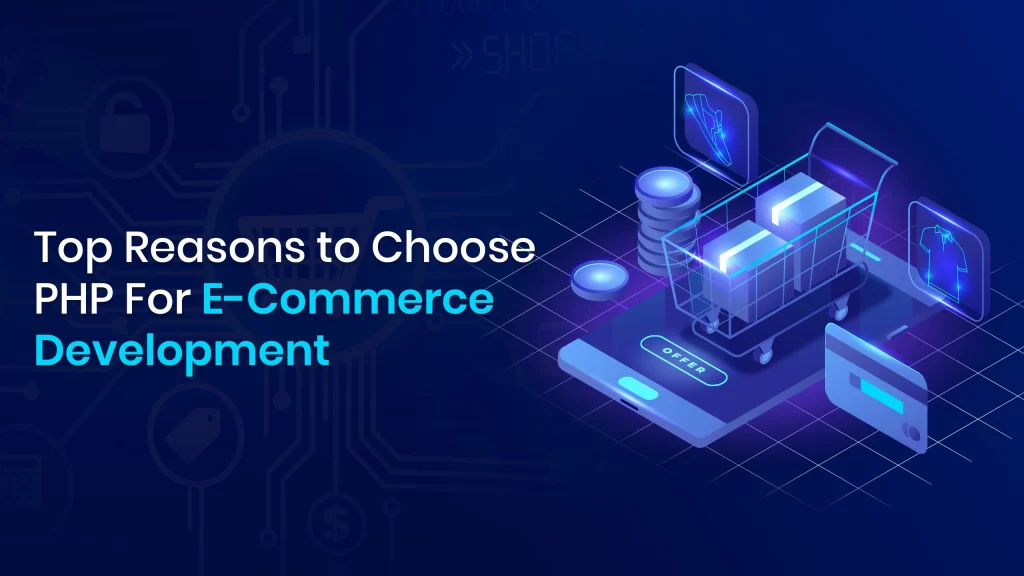
In the ever-evolving landscape of e-commerce, selecting the right technology stack for your online store is crucial. Among the myriad of programming languages available, PHP has emerged as a stalwart for E-Commerce development. In this article, we’ll delve into the top reasons why PHP continues to be a preferred choice for building robust and scalable online stores.
1. Open Source Advantage
One of the key reasons for PHP’s dominance in E-Commerce development is its open-source nature. Being an open-source scripting language means that it is freely available for developers, making it a cost-effective solution for businesses of all sizes. The vast PHP community continually contributes to its development, ensuring that the language is always up-to-date with the latest trends and security patches. This collaborative ecosystem results in a robust and stable foundation for E-Commerce projects.
2. Platform Independence
PHP is platform-independent, meaning it can run on various operating systems, including Windows, Linux, macOS, and more. This flexibility allows developers to choose the environment that best suits their requirements, making PHP an ideal choice for creating cross-platform E-Commerce development. Whether you’re hosting your website on a Linux server or a Windows server, PHP ensures seamless compatibility.
3. Ease of Learning and Development
PHP is known for its simplicity and ease of learning, making it an attractive option for developers. Its syntax is similar to C, Java, and Perl, which simplifies the learning curve for those already familiar with these languages. This ease of adoption translates into faster development cycles, reducing time-to-market for your E-Commerce platform. Additionally, PHP’s extensive documentation and online resources contribute to a supportive environment for developers, fostering a quicker and more efficient development process.
4. Scalability for Growing Businesses
Scalability is a critical factor for any E-Commerce platform, especially for businesses with ambitious growth plans. PHP provides excellent scalability, allowing developers to seamlessly expand and enhance the functionality of an online store as the business grows. Whether it’s handling increased traffic, adding new features, or integrating with third-party services, PHP’s scalability ensures that your E-Commerce site can evolve in tandem with your business requirements.
5. Wide Range of Frameworks
PHP boasts a rich ecosystem of frameworks that streamline and accelerate the development process. Frameworks like Laravel, Symfony, and CodeIgniter provide developers with pre-built modules, templates, and libraries, reducing the need to write code from scratch. These frameworks not only enhance the efficiency of development but also contribute to the overall security and maintainability of E-Commerce applications.
6. Security Measures
Security is a top priority for E-Commerce websites, as they handle sensitive customer information and financial transactions. PHP, over the years, has significantly improved its security features. With the implementation of best practices, such as data encryption, input validation, and secure authentication mechanisms, PHP ensures a robust security posture for E-Commerce applications. Additionally, the active PHP community regularly addresses and patches security vulnerabilities, providing a secure environment for online businesses.
7. Database Compatibility
E-Commerce websites heavily rely on databases to store and manage vast amounts of product information, user data, and transaction records. PHP seamlessly integrates with various databases, including MySQL, PostgreSQL, and MongoDB, offering developers the flexibility to choose a database solution that aligns with their specific requirements. This compatibility ensures optimal performance and efficient data management for E-Commerce applications.
8. Community Support and Documentation
The PHP community is extensive and vibrant, with a wealth of knowledge and experience. Developers can leverage community forums, discussion groups, and online resources to seek guidance, troubleshoot issues, and stay updated on the latest trends. Additionally, PHP’s comprehensive documentation provides a valuable resource for both novice and experienced developers, facilitating smooth development and maintenance of E-Commerce projects.
9. Cost-Effectiveness
For businesses looking to optimize costs without compromising on quality, PHP is a compelling choice. As an open-source language, PHP eliminates licensing fees, making it a cost-effective solution for E-Commerce development. The availability of a vast talent pool of PHP developers further contributes to reduced development costs, ensuring that businesses can achieve their E-Commerce goals within budgetary constraints.
10. Proven Track Record
PHP has a long and successful track record in the realm of web development, including E-Commerce development. Many popular E-Commerce platforms, such as WordPress WooCommerce, Magento, and Drupal Commerce, are built on PHP. The widespread adoption of PHP by these industry giants underscores its reliability and effectiveness in delivering high-performance and feature-rich online stores.
Conclusion
Choosing the right technology stack is paramount to the success of your E-Commerce venture, and PHP continues to be a formidable choice for businesses worldwide. Its open-source nature, platform independence, ease of learning, scalability, and robust security features make PHP a versatile and reliable option for developing dynamic and feature-rich online stores. As the E-Commerce landscape continues to evolve, PHP stands as a steadfast companion, empowering businesses to navigate the digital marketplace with confidence and competence.
